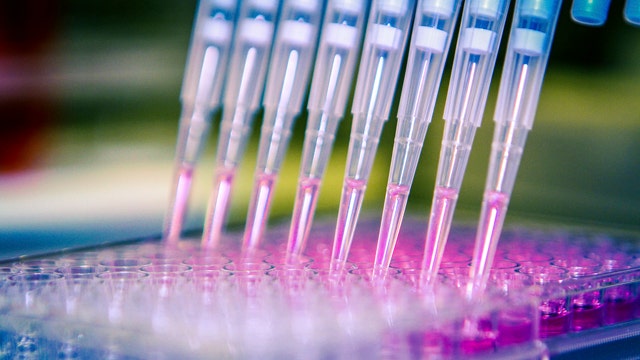Killing cancer one gene at a time
Scientists are now discovering the best way to understand and treat cancer is to figure out precisely what went wrong in each individual patient's cells. Dr. Manny sits down with renowned oncologist Dr. Andrew Kung to talk about precision medicine
Cancer is a deadly word with a cursed past. In 2012, 8.2 million people worldwide died from the disease, and it’s estimated that by 2030 there will be 22 million cancer cases.
The PBS documentary "Cancer, The Emperor of All Maladies" takes a look at the history of cancer and where doctors are today in treating and preventing it. The three-part series, which can be viewed on Cancerfilms.org, was based on the Pulitzer prize-winning book by Siddhartha Mukherjee, an assistant professor of medicine at Columbia University Medical Center.
The film takes a ride back in time to review how far medicine has come in finding a cure for cancer. Over the years doctors have used various methods to kill cancer— they’ve cut it out, burned it and poisoned it. Only within the last decade or so have scientists begun to understand what cancer really is and what the biology of an individual patient’s disease can tell them about how to treat the disease.
“We know cancer is a result in changes to the genes— so we are able to take a patient’s cancer, sequence all the genes in the cancer, sequence all the genes in the human body, and compare them to find out which ones (genes) changed,” Dr. Andrew Kung, chief of Pediatric Hematology, Oncology, and Stem Cell Transplantation at Columbia University Medical Center, told FoxNews.com. “Finding the right treatment is based on the fact that current technologies allow us to test and identify precisely what went wrong to result in the cancer developing in the individual patient, and the way we would do that is to use [genetic] sequencing,”
Treating cancer by targeting a patient’s genome— the complete set of genetic information— is often known as precision medicine.
“Twenty-five years ago when the human genome project was first initiated, it took 13 years and 3 billion dollars to sequence the genome of a single individual. We can now do that sequencing in less than a week for a few thousand dollars, and that’s the technology we’re using to test the DNA in cancer,” said Kung, who also spoke at a media briefing with a panel of scientists about the future of cancer for the TV special.
The impact of these discoveries is already being felt today. Since 2012, the Food and Drug Administration’s (FDA) Center for Drug Evaluation and Research has approved 30 targeted therapies.
In this year’s State of the Union Address, President Barack Obama called for a new initiative to fund precision medicine so the medical industry can continue to develop patient-specific remedies, and discover ways to overcome drug resistance in new and current cancer treatments.
“One of the goals of precision medicine is to be able to identify changes in the genes or characteristics of the disease that would predict that the disease wouldn’t respond well to the standard way of treating,” Kung said. “It’s important to think of precision medicine [as] not only telling us what treatments should be applied, but which ones shouldn’t be applied because they are doomed to fail.”
But with all the advancements in genomics, can precision medicine answer the age-old questions of how someone gets cancer, and why someone’s healthy cells change and mutate into cancer-causing cells?
“We have a pretty good idea on why genes mutate,” Kung said. “Genes in our body continue to go through changes as a byproduct of life, and there are certain things that will increase the number of genetic changes; lifestyle risks, exposure to sun, carcinogens in cigarette smoke, things that cause carcinogenic changes in our diet, these all can contribute and accelerate the growth of cancer.”
“Our body has mechanisms in place to correct those changes,” Kung added, “which is why, among the trillions of cells in our bodies, most of them are repaired. It is really just— I hate to say it— bad luck. The wrong change occurs in the wrong gene at the wrong time and turns into cancer.”
Progress in cancer research has led oncologists to combine some of these new targeted therapies with other treatments like immunotherapy, which uses certain parts of a person’s immune system to kill cancer.
“If we have learned anything in the last 10 years it’s that cancer needs to be treated in a combination of ways. For example, in a newly diagnosed patient, we might use precision medicine precepts to understand what chemotherapy or radiation would be best to treat the bulk of it— then immunotherapy to mop up and clear out the residual disease and keep it at bay,” Kung said.
Although current genetic technologies and tests are faster and cheaper than ever before, Kung warns that they still may not be cheap enough for everyone, and insurance companies have not yet begun to reimburse patients for them.
“I think that the first challenge will be reimbursement,” he said. “These are tests that are just making the transition out of the laboratory to the clinic. We need to get to the point where we demonstrate the value of these tests so that they are reimbursed.”

